
A new study from TALC affiliate Karen Fingerman finds older adults express more positivity in both in-person and phone chats—but only face-to-face talks invite sharing negative feelings. Read more here:
link.springer.com/article/10.1...
@ryanmoore.bsky.social
Assistant Professor @ UT Austin School of Information website: https://ryanmoore.science/

A new study from TALC affiliate Karen Fingerman finds older adults express more positivity in both in-person and phone chats—but only face-to-face talks invite sharing negative feelings. Read more here:
link.springer.com/article/10.1...

Excited to announce the third annual Comm Horizons @ucdavis.bsky.social Conference:
Communication in the Age of AI and Algorithms
Featuring cutting-edge research and keynotes from Jeff Hancock and @angelhwang.bsky.social
Hope you'll submit and share! communication.ucdavis.edu/horizonconf2...


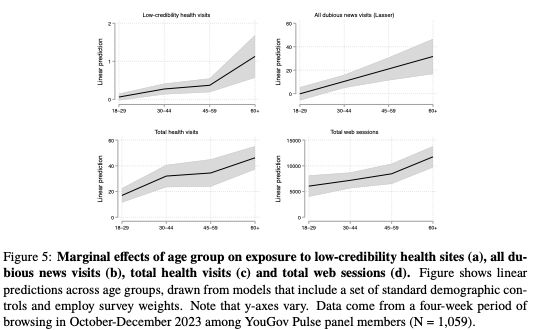

Updated "Exposure to low-credibility online health content...", now w YouTube data: Older adults consume less YT, but a higher proportion is low-cred. Dubious political news ex is linked w low-cred health ex.. suggests shared consumption profile spans topics + platforms
osf.io/preprints/os...

How common are “survey professionals” - people who take dozens of online surveys for pay - across online panels, and do they harm data quality?
Our paper, FirstView at @politicalanalysis.bsky.social, tackles this question using browsing data from three U.S. samples (Facebook, YouGov, and Lucid):
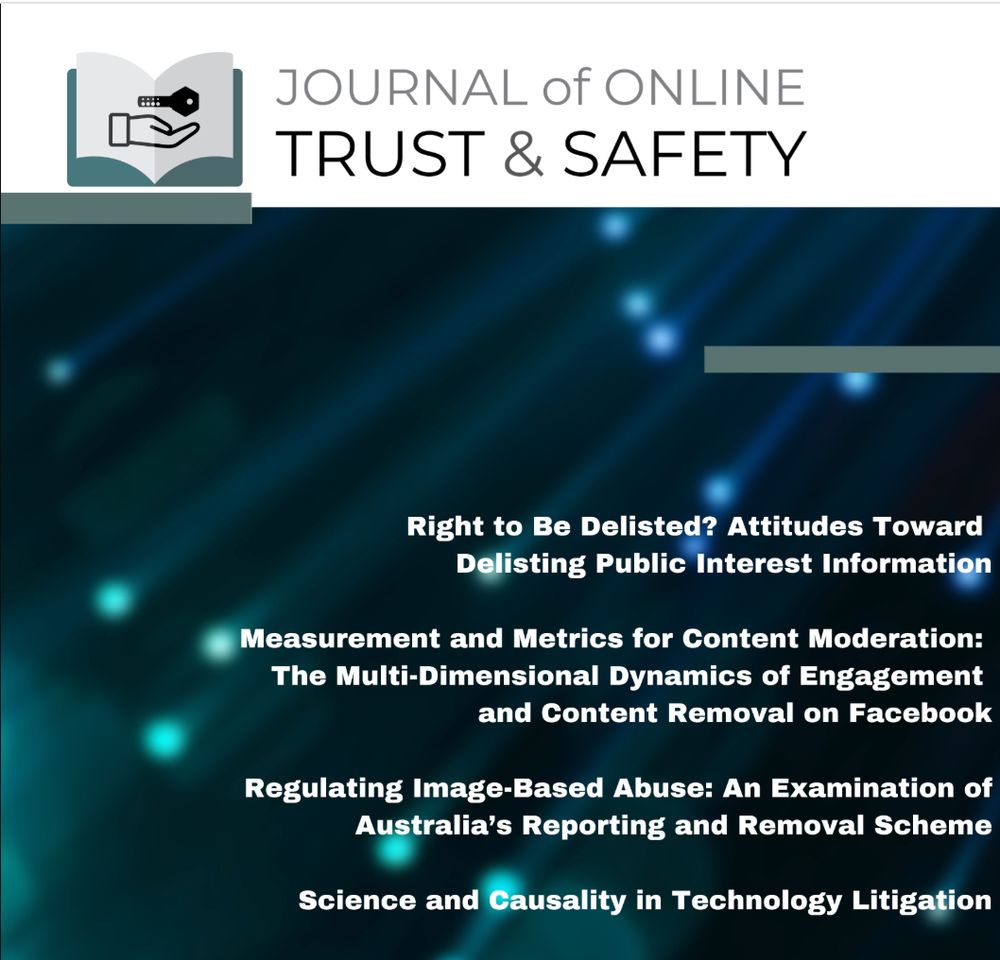
Cover art of the Journal of Online Trust & Safety showing an abstract blue background of light trails and titles of articles
Share your voice! Under two weeks left to submit commentary articles to the Journal of Online Trust & Safety for the Trust & Safety Research Conference proceedings in Sept. Authors of accepted commentaries are invited to present at the conference. DEADLINE JULY 1st 🔗
tsjournal.org/index.php/jo...
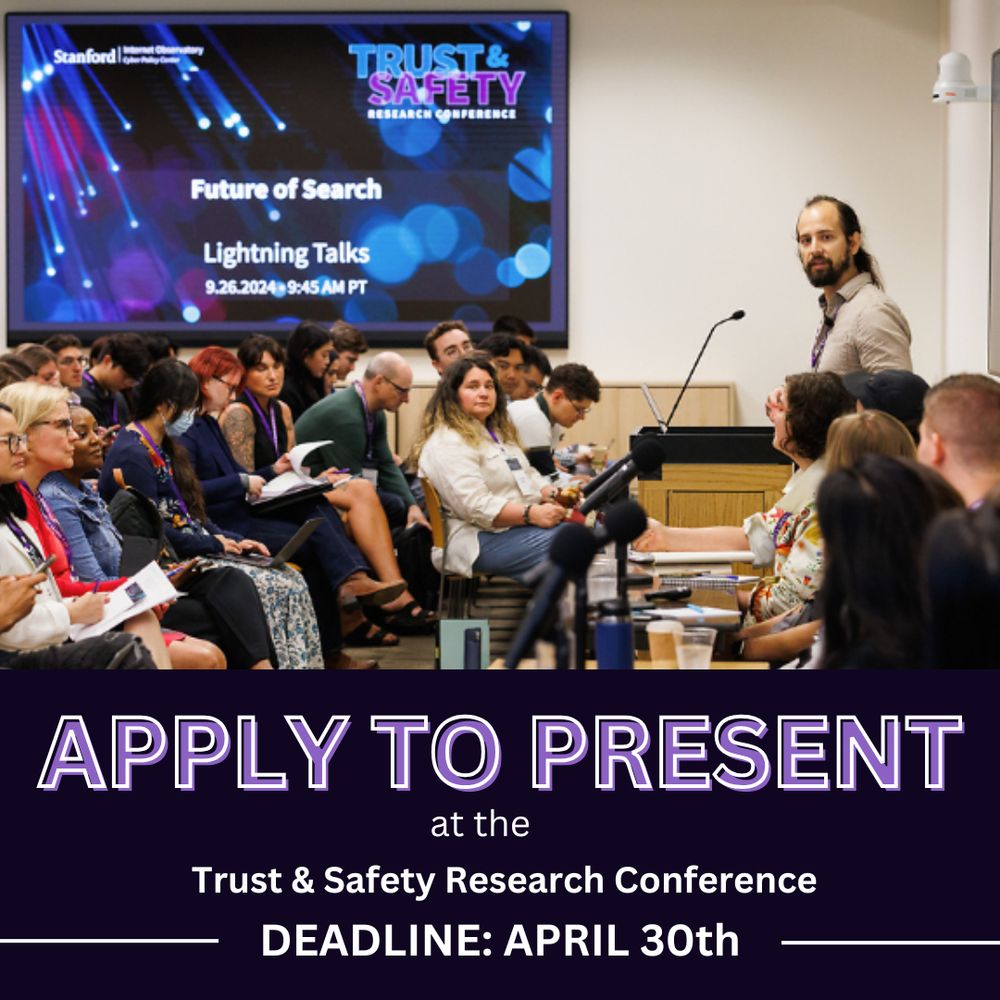
Ronald Robertson standing at a podium, moderating a lightning talk with a panel of presenters speaking to a seated audience
Five days left to apply to present your research at the always sold out 2025 Trust & Safety Research Conference! Got an idea for a research presentation, participant-organized panel, science fair-styled poster or workshop? Show us what you got:
Apply: cyber.fsi.stanford.edu/content/trus...


“Detecting Synthetic, Doubting Authentic: AI Attribution Bias for Political Imagery”
📍 Full preprint: osf.io/preprints/os...
🧵 Here’s what we found about how #GenAI is reshaping trust in political visuals during elections: (1/)
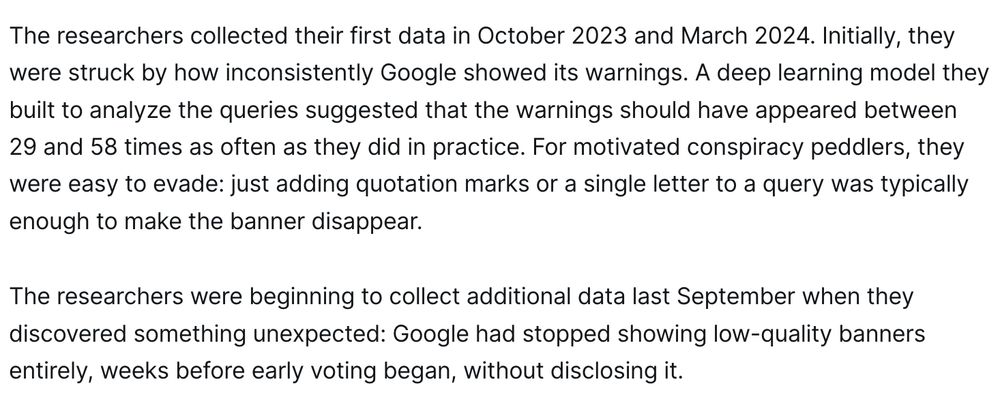
The researchers collected their first data in October 2023 and March 2024. Initially, they were struck by how inconsistently Google showed its warnings. A deep learning model they built to analyze the queries suggested that the warnings should have appeared between 29 and 58 times as often as they did in practice. For motivated conspiracy peddlers, they were easy to evade: just adding quotation marks or a single letter to a query was typically enough to make the banner disappear. The researchers were beginning to collect additional data last September when they discovered something unexpected: Google had stopped showing low-quality banners entirely, weeks before early voting began, without disclosing it.
NEW: Google used to warn you when you were seeing low-quality search results. Then, in the weeks leading up to the 2024 election, the company quietly turned that warning off www.platformer.news/google-data-...
25.02.2025 01:46 — 👍 15104 🔁 4500 💬 123 📌 295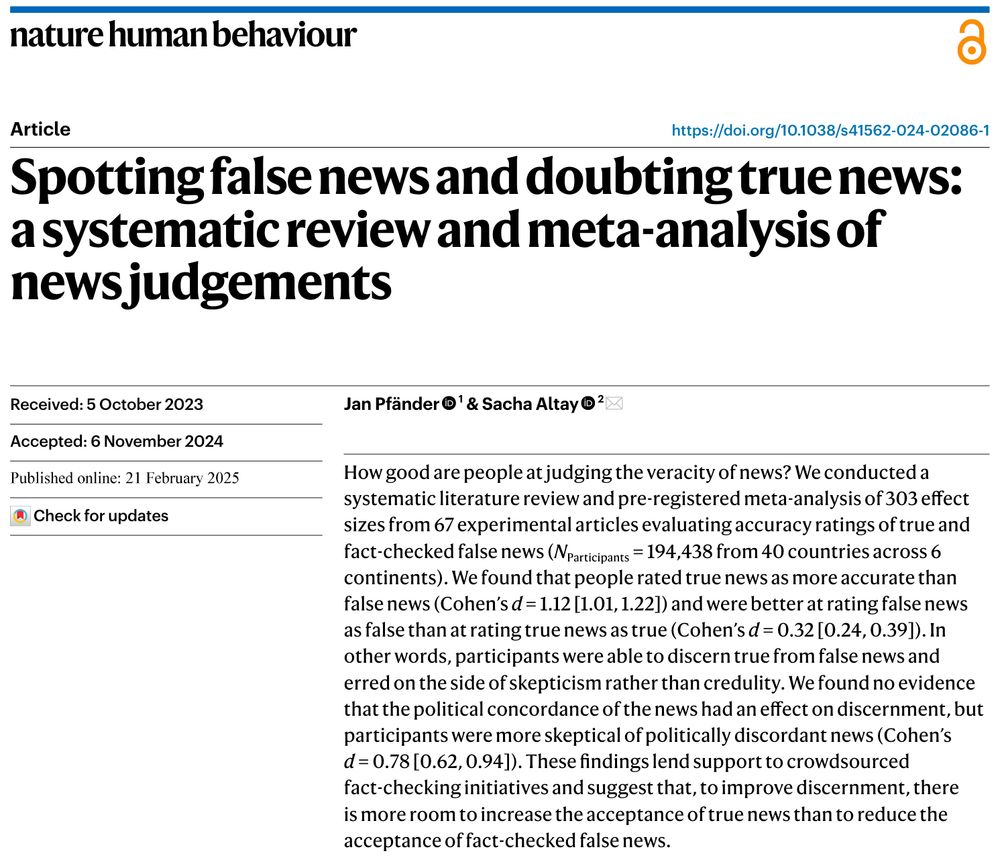
Out in @naturehumbehav.bsky.social
Can people tell true from false news?
Yes! Our meta-analysis shows that people rate true news as more accurate than false news (d = 1.12) and were better at spotting false news than at recognizing true news (d = 0.32).
www.nature.com/articles/s41...
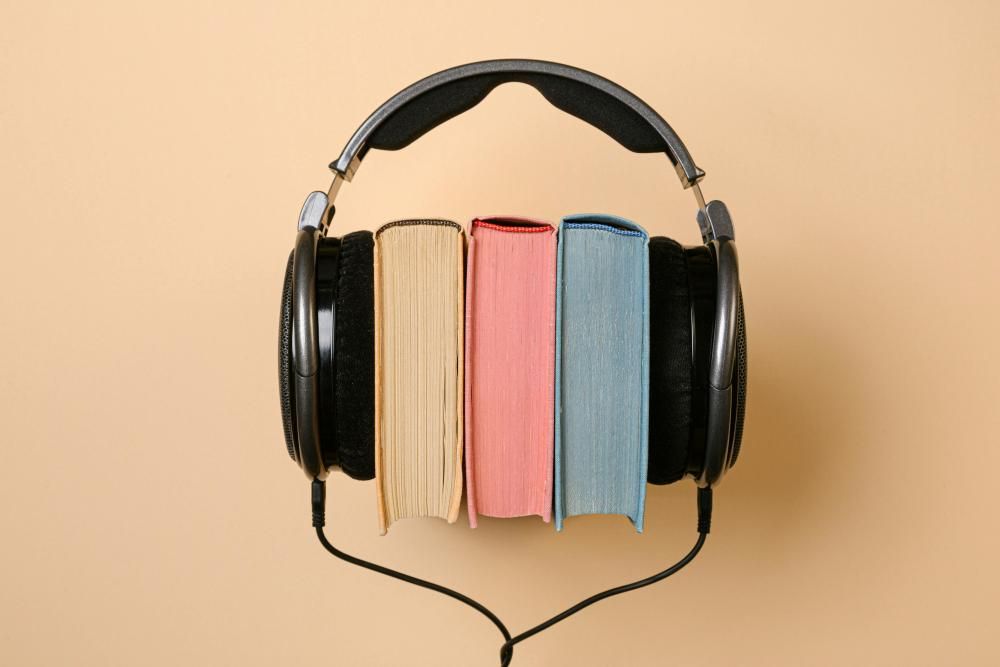
Three books, colored yellow, red, and blue, between a pair of over-the-ear headphones.
🚨 Join us for #CommHorizons25, hosted by the Department of Communication @ucdavis.bsky.social!
Theme: Media, Health, & Society: Exploring Wellbeing Across Lifespans & Diverse Communities
Keynotes: Drs. Dana Mastro & @davidmmarkowitz.bsky.social.
Info: communication.ucdavis.edu/horizonconf2...
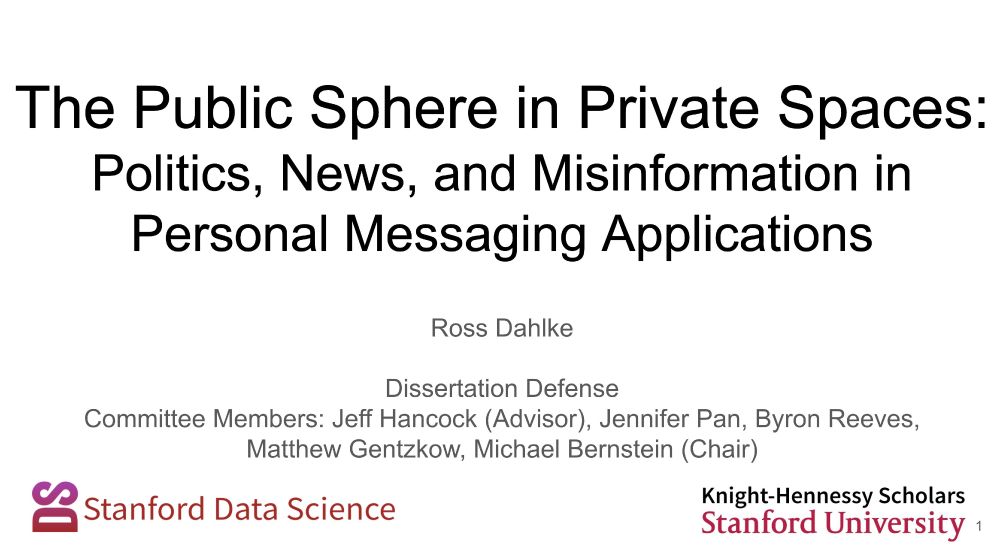
The Public Sphere in Private Spaces: Politics, News, and Misinformation in Personal Messaging Applications
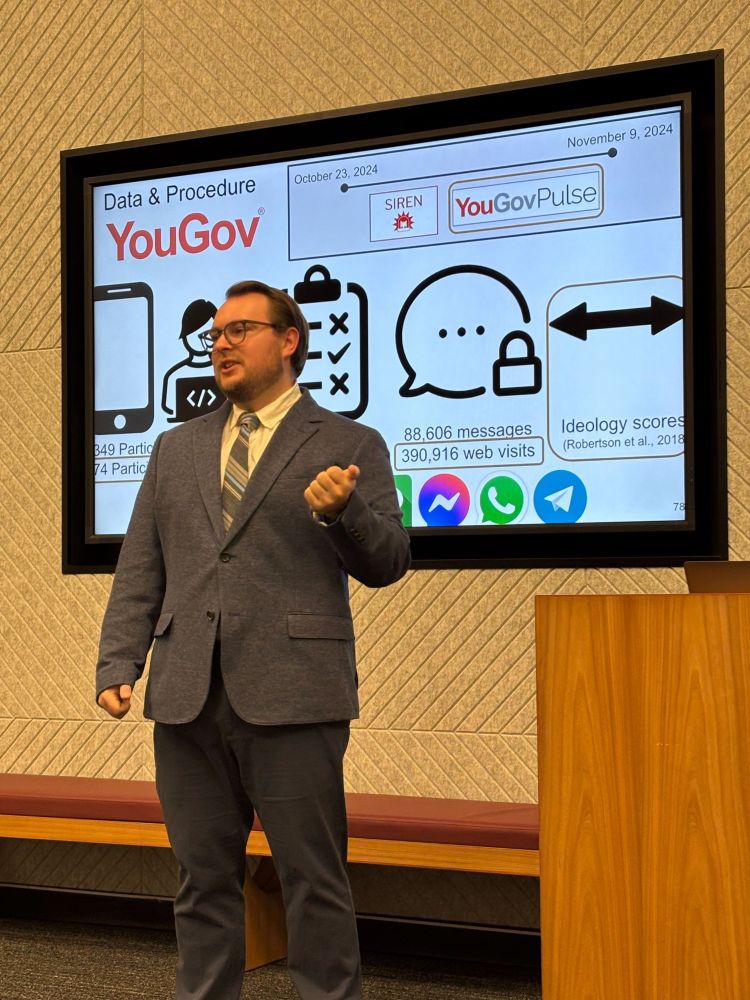
Data & Procedure
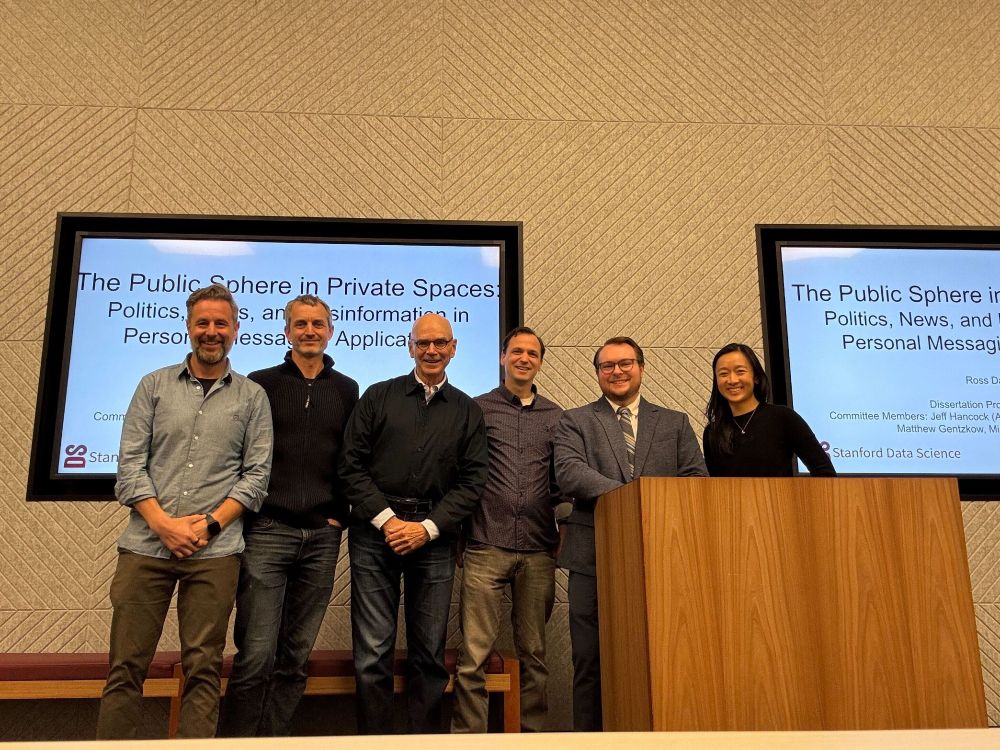
Committee group picture
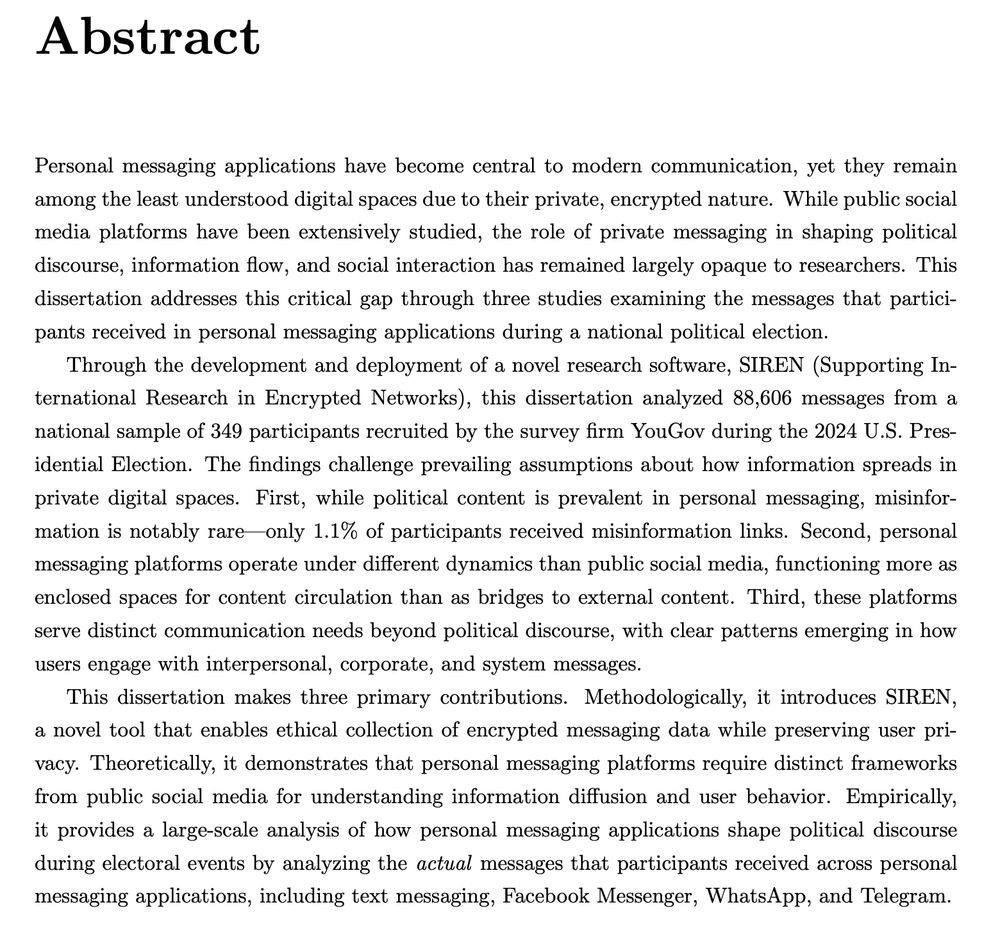
Abstract
Very happy to say that I passed my PhD dissertation defense, "The Public Sphere in Private Spaces: Politics, News, and Misinformation in Personal Messaging Applications." Grateful for my advisor, committee, and everyone at Stanford
11.12.2024 22:56 — 👍 153 🔁 7 💬 23 📌 1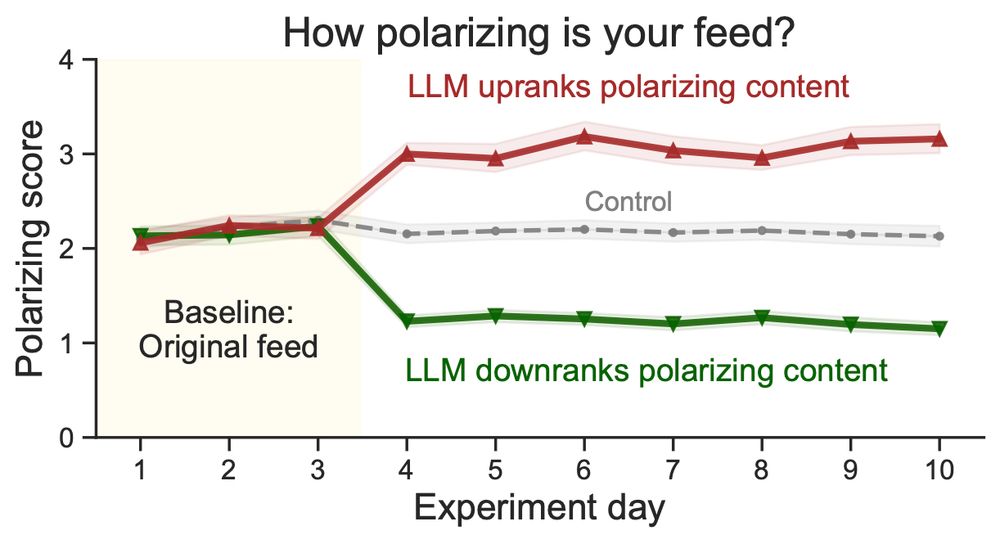
New paper: Do social media algorithms shape affective polarization?
We ran a field experiment on X/Twitter (N=1,256) using LLMs to rerank content in real-time, adjusting exposure to polarizing posts. Result: Algorithmic ranking impacts feelings toward the political outgroup! 🧵⬇️
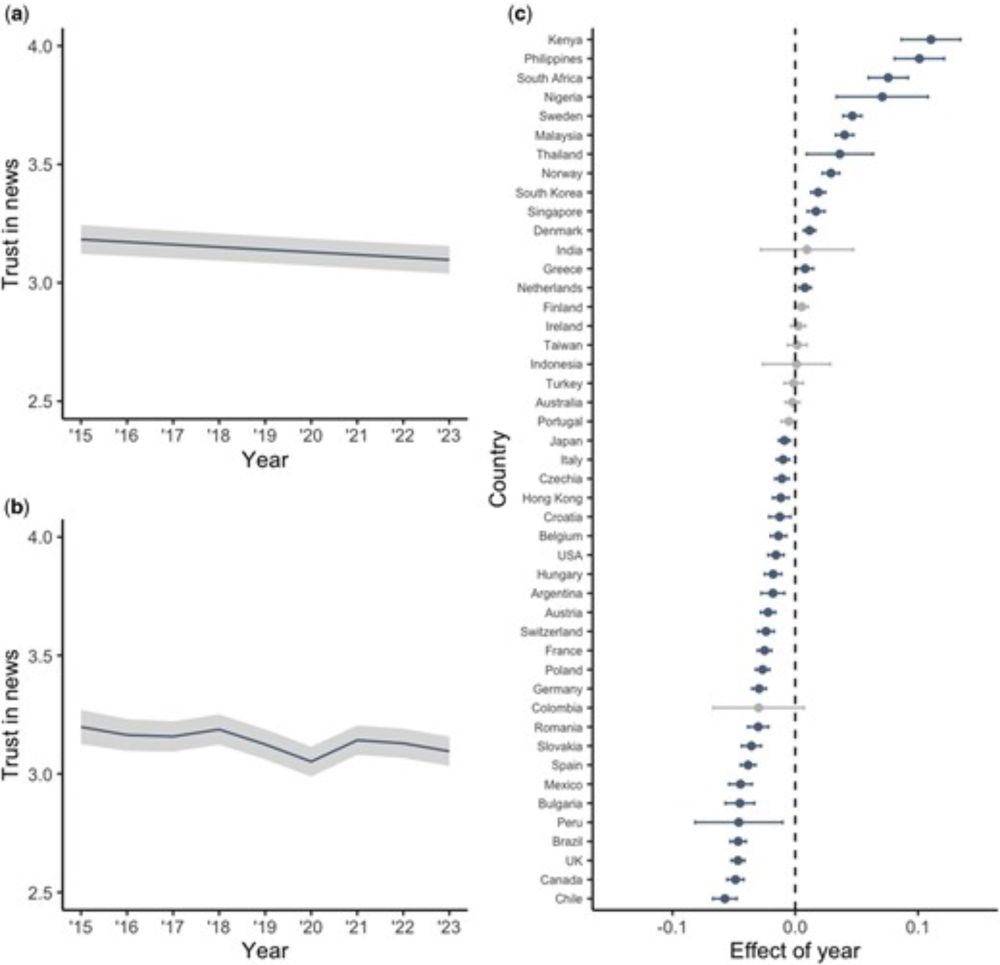
New article in Journal of Communication looking at changes to trust in news across 46 countries in the last 10 years.
Trust in news declined in just over half of countries.
It decreased more in countries where TV news use has declined, and/or where social media news use has grown.
A thread:
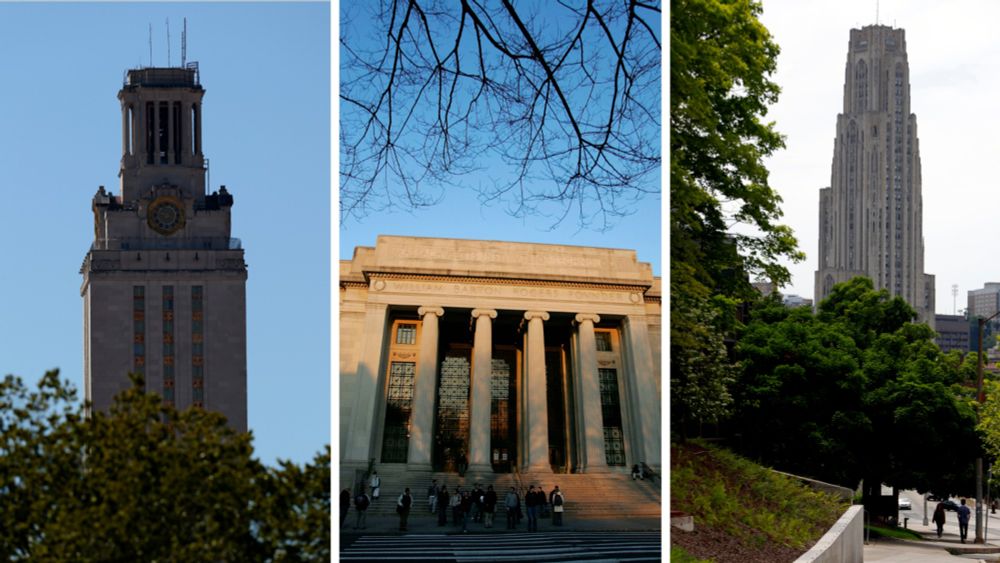
Nearly half a dozen institutions of higher education announced plans this week to make tuition free for undergraduates whose families make below a certain income threshold, starting in fall 2025.
22.11.2024 21:26 — 👍 2867 🔁 482 💬 59 📌 73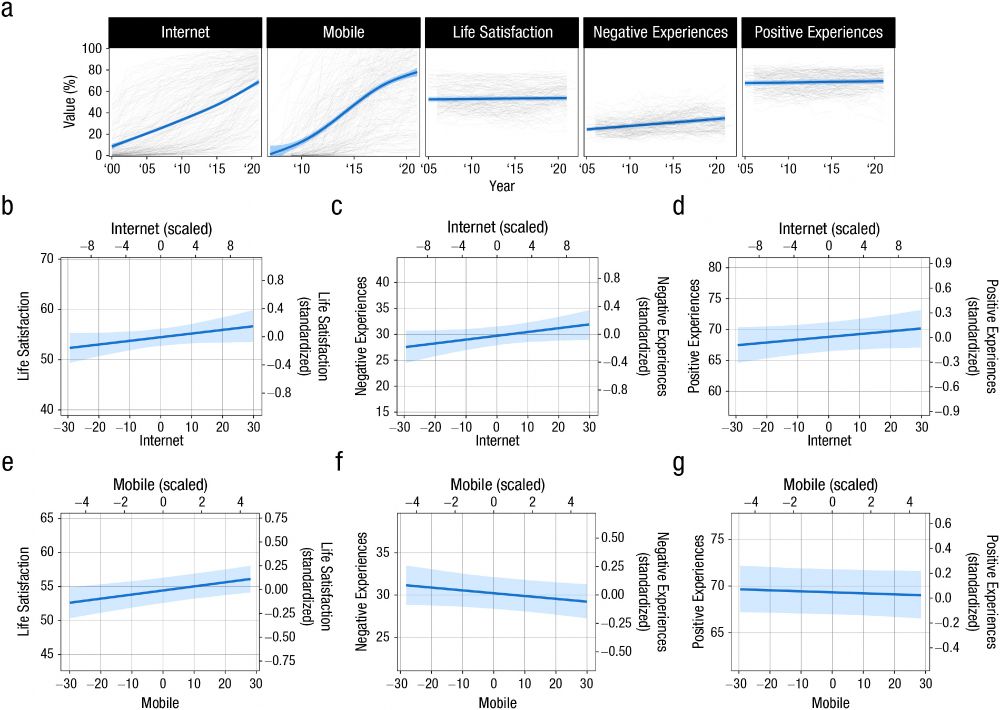
Excited to share our latest study (feat. @matti.vuorre.com) on Internet & global mental health. We find major shifts in tech and minor variations in well-being across two decades. We aim to describe these trends in the full paper:
journals.sagepub.com/doi/10.1177/... #DigitalWellbeing #InternetAge

UW campus, Drumheller Fountain and Rainier Vista.
[Please reshare]
I’m recruiting PhD students to work with me at UW!
I’m looking for students passionate about developing new *social media algorithms*, both broadly and within the scope of this NSF grant: tinyurl.com/395yfphd
More info: faculty.washington.edu/msaveski/
cc @uwischool.bsky.social
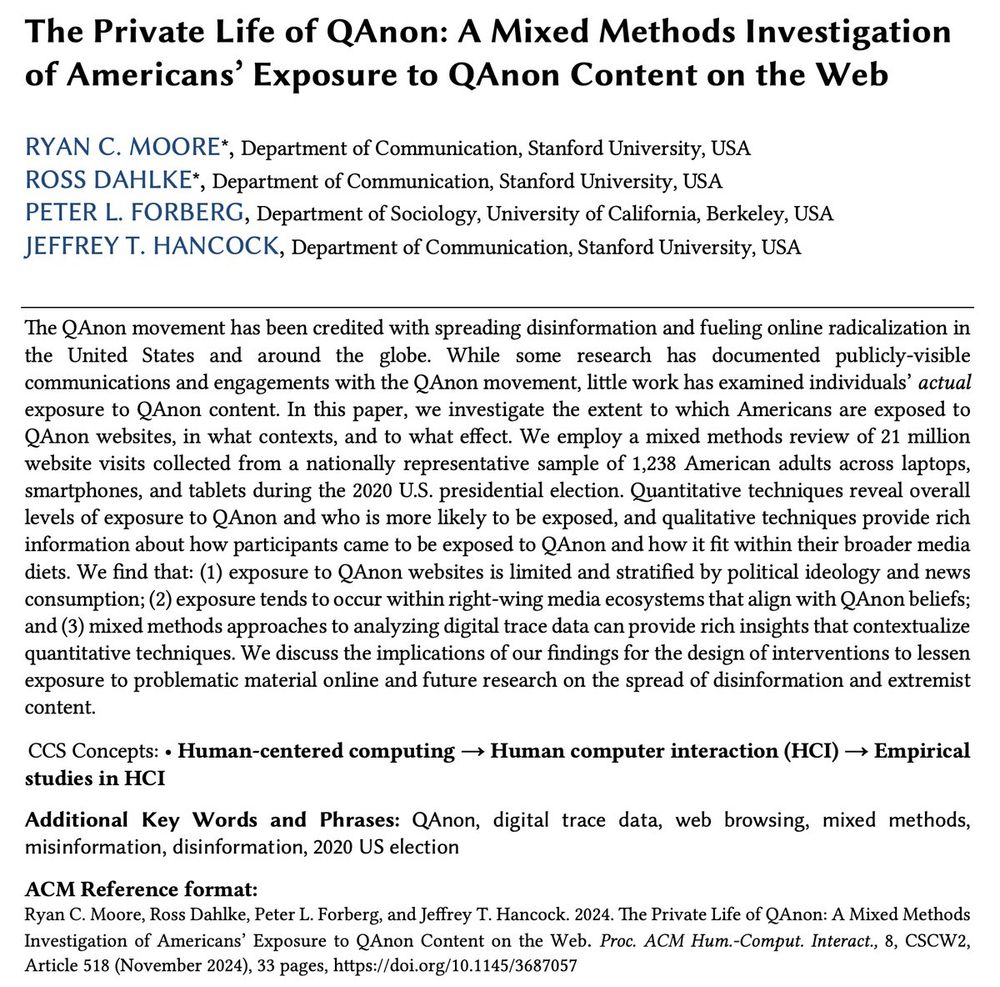
The Private Life of QAnon: A Mixed Methods Investigation of Americans' Exposure to QAnon Content on the Web
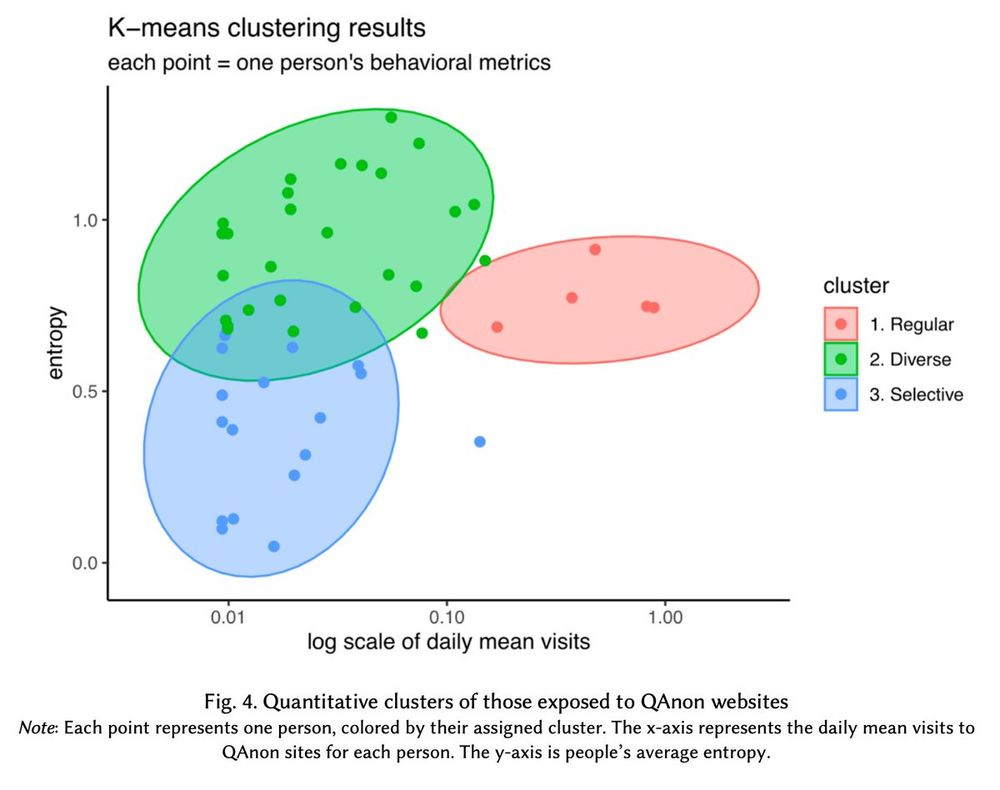
Figure 4. Quantitative clusters of those exposed to QAnon websites
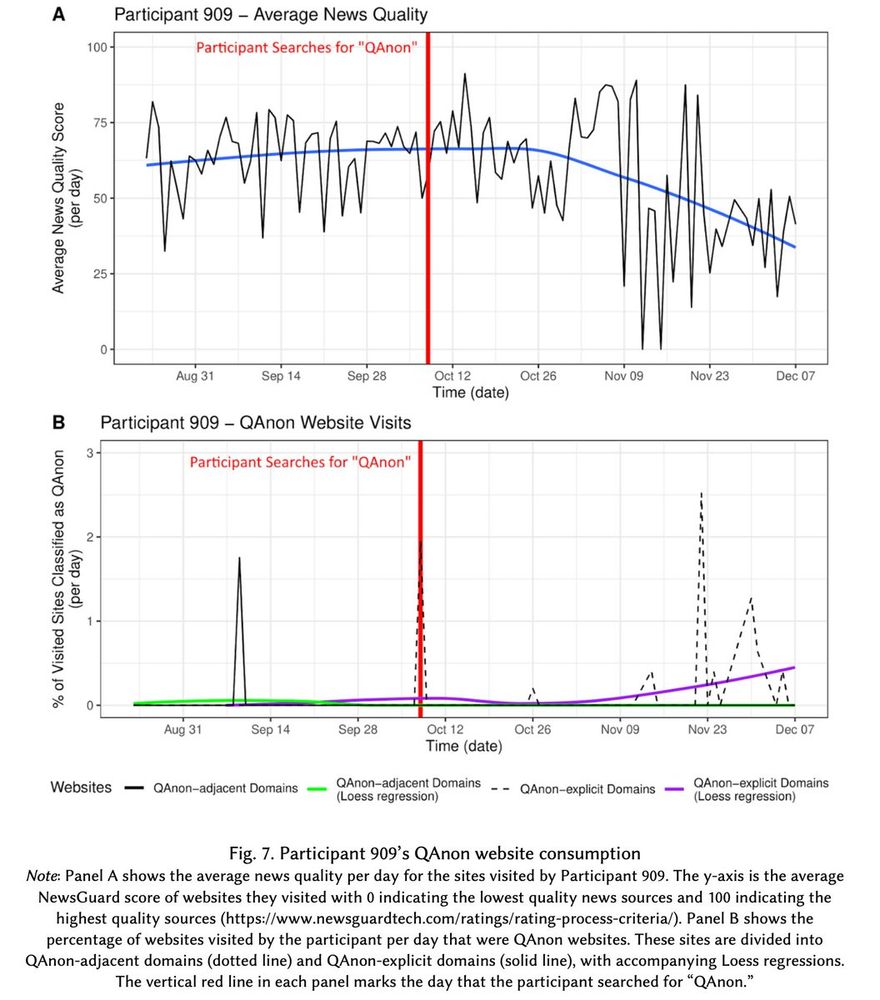
Figure 7. Participant 909's QAnon website consumption
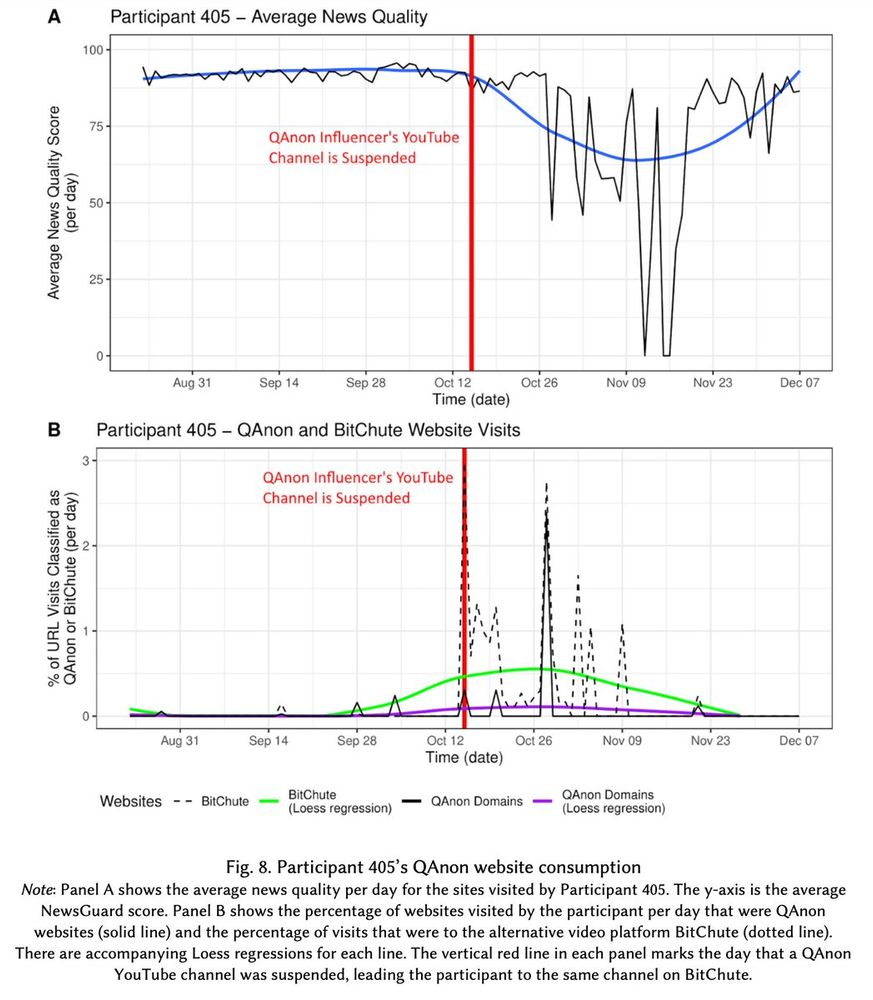
Figure 8. Participant 405's Qanon website consumption
✨New from @ryanmoore.bsky.social me @peterforberg.bsky.social & Hancock in #CSCW2024. We take a mixed-methods approach to studying American's exposure to QAnon, finding those on the political extremes are most likely to be exposed, but with distinct types of consumers dl.acm.org/doi/10.1145/...
12.11.2024 18:55 — 👍 34 🔁 13 💬 2 📌 0Wow, that’s amazing Danaë! Congrats to all!!
04.04.2024 15:01 — 👍 2 🔁 0 💬 1 📌 0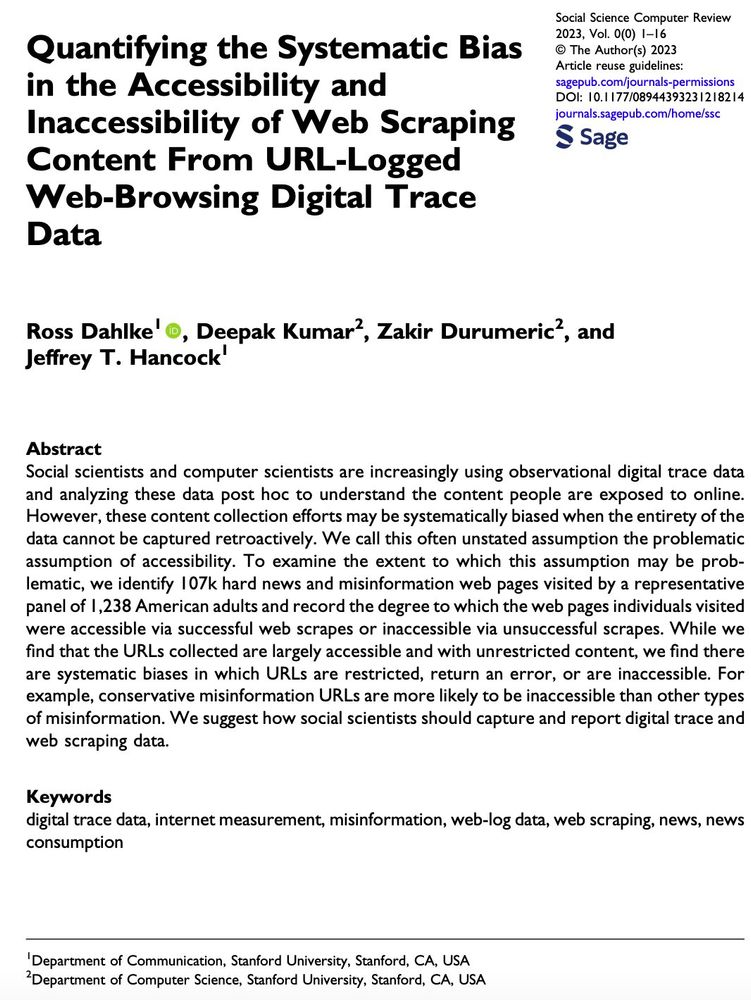
Quantifying the Systematic Bias in the Accessibility and Inaccessibility of Web Scraping Content From URL-Logged Web-Browsing Digital Trace Data. Abstract:Social scientists and computer scientists are increasingly using observational digital trace data and analyzing these data post hoc to understand the content people are exposed to online. However, these content collection efforts may be systematically biased when the entirety of the data cannot be captured retroactively. We call this often unstated assumption the problematic assumption of accessibility. To examine the extent to which this assumption may be problematic, we identify 107k hard news and misinformation web pages visited by a representative panel of 1,238 American adults and record the degree to which the web pages individuals visited were accessible via successful web scrapes or inaccessible via unsuccessful scrapes.
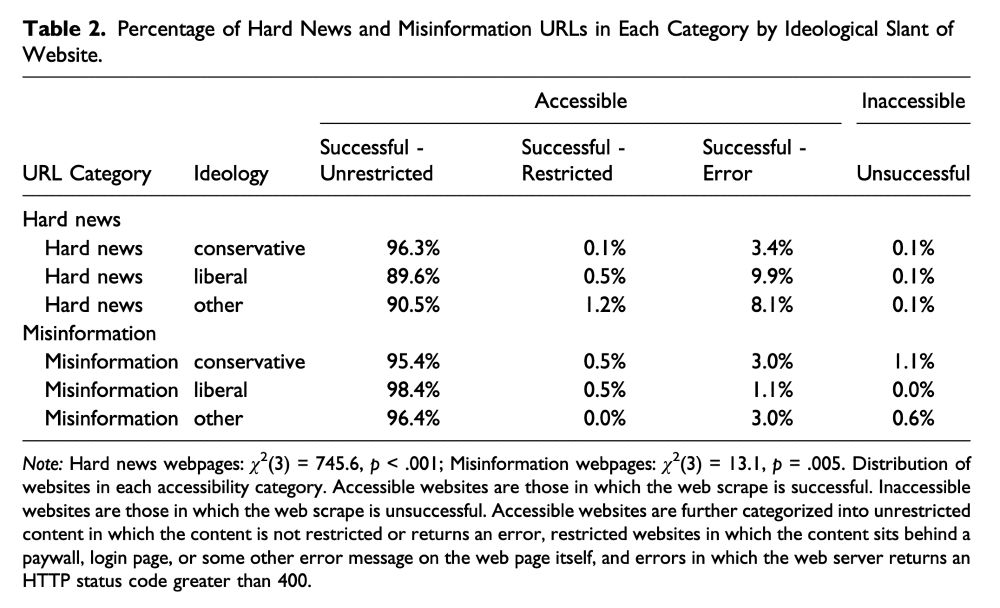
Note: Hard news webpages: χ2(3) = 745.6, p < .001; Misinformation webpages: χ2(3) = 13.1, p = .005. Distribution of websites in each accessibility category. Accessible websites are those in which the web scrape is successful. Inaccessible websites are those in which the web scrape is unsuccessful. Accessible websites are further categorized into unrestricted content in which the content is not restricted or returns an error, restricted websites in which the content sits behind a paywall, login page, or some other error message on the web page itself, and errors in which the web server returns an HTTP status code greater than 400.
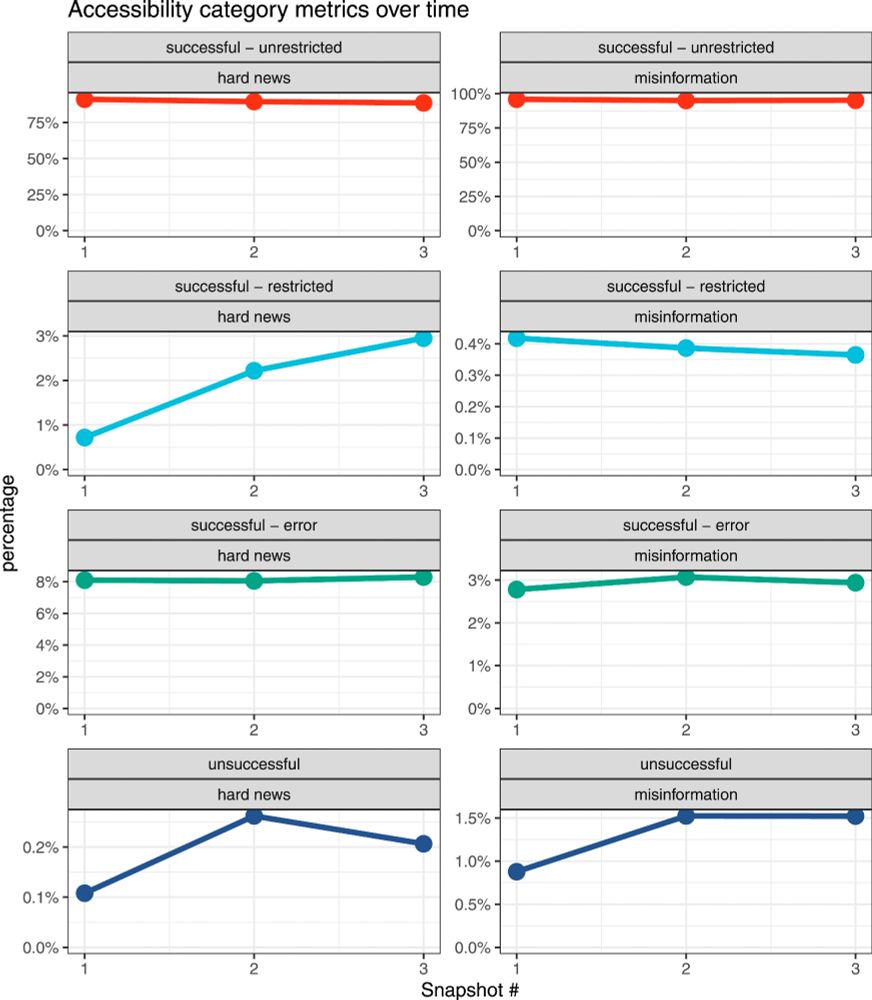
Figure 1. Accessibility category metrics over time.
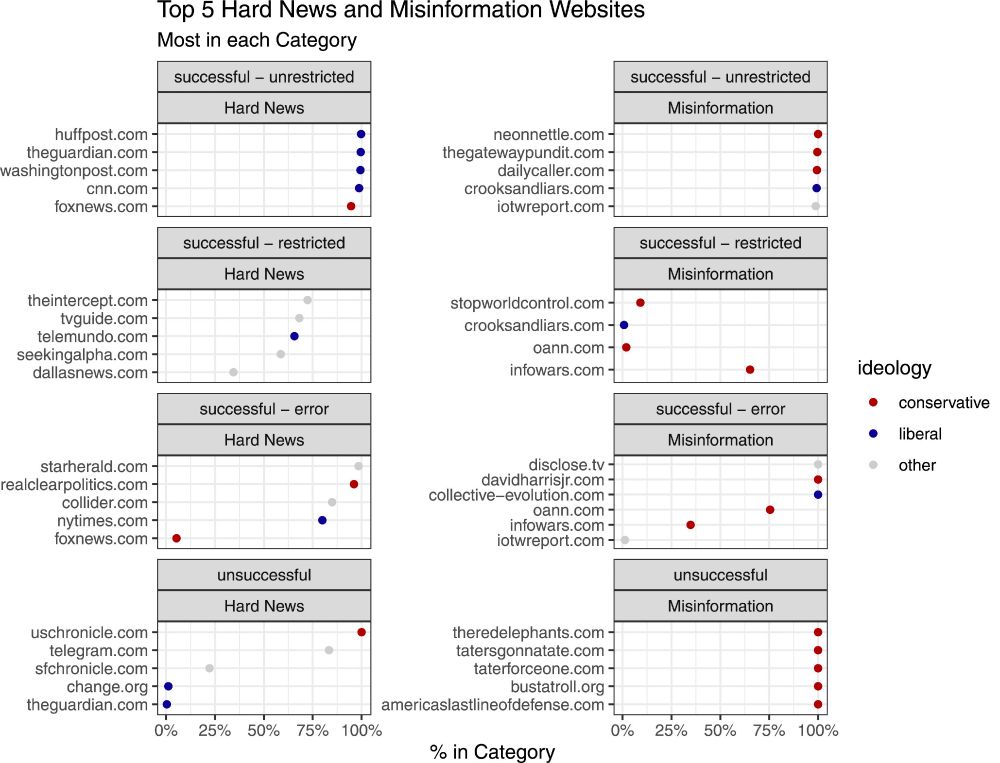
Figure 2
🚨New from me, Kumar, Durumeric & Hancock. We use web-browsing data (N = 21M) to quantify the (in)accessibility of misinformation and news visits, finding that conservative misinformation is most likely to be inaccessible to researchers via scraping doi.org/10.1177/08944393231218214
29.11.2023 18:14 — 👍 28 🔁 9 💬 2 📌 0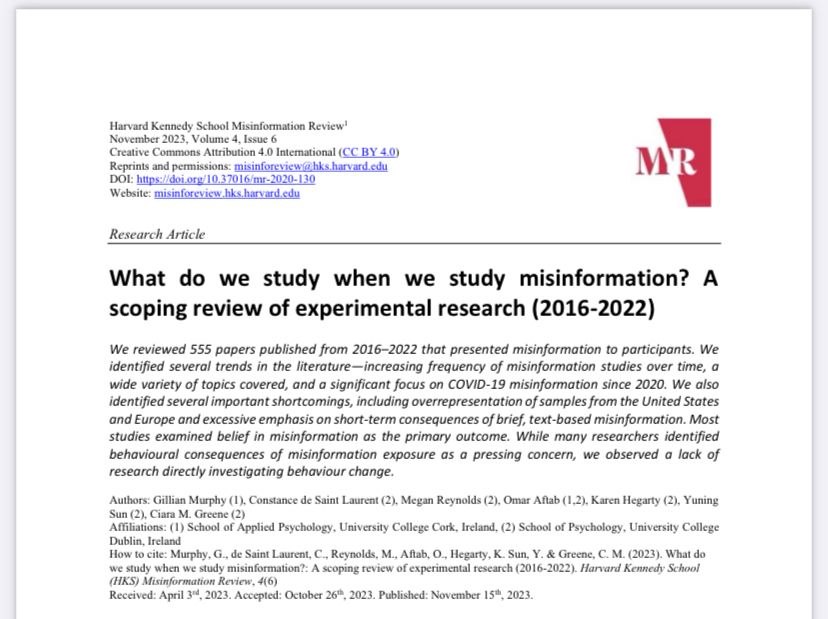
Screenshot of title page for article “What do we study when we study misinformation? A scoping review of experimental research (2016-2022)”
Delighted to see this paper published at HKS Misinformation Review with Gillian Murphy (not yet on BlueSky!) and a fantastic group of post docs and RAs.
This was a huge review examining all misinfo studies published since 2016
misinforeview.hks.harvard.edu/article/what...
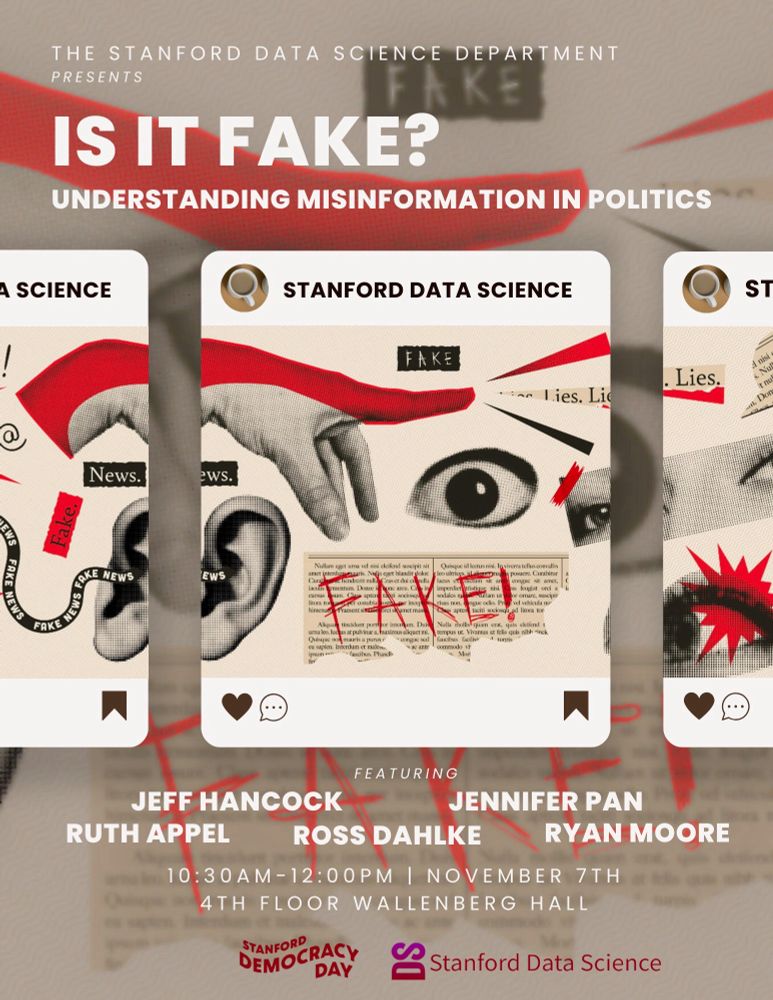
Is it fake? Understanding misinformation in politics.
Excited to be presenting my research on misinformation exposure and effects tomorrow for Democracy Day at Stanford w/ @ryanmoore.bsky.social & Stanford Data Science
06.11.2023 15:17 — 👍 21 🔁 4 💬 0 📌 0